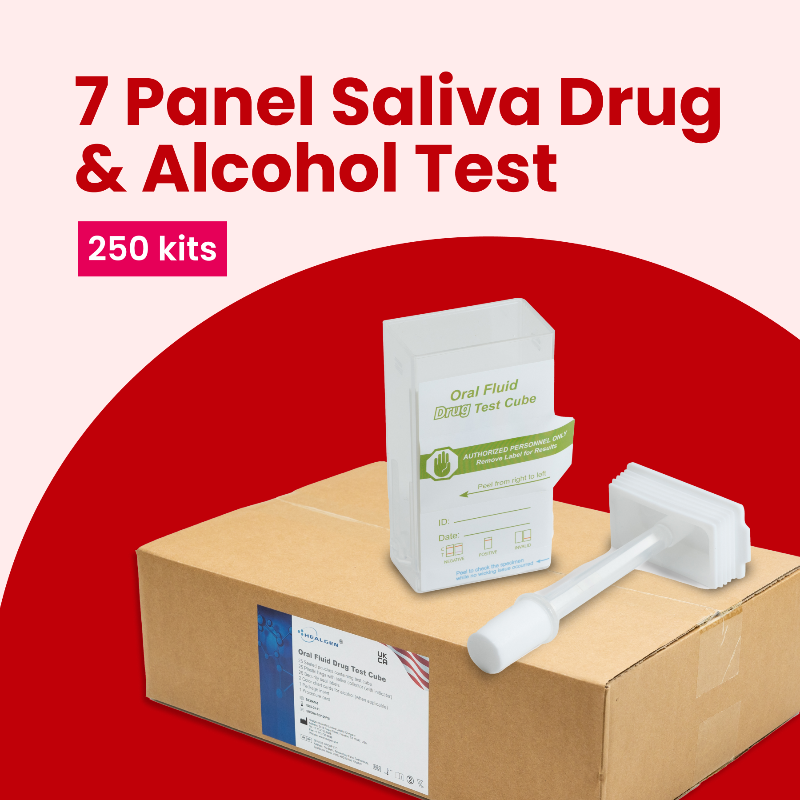Workplace Drug Testing UK | Laws, Employee Rights & Policy
Workplace testing in the UK has become more common, especially in jobs where safety is paramount. According to the Health and Safety Executive (HSE), drug and alcohol misuse can increase the risk of accidents at work. As a result, many employers now include drug testing as part of their workplace policies. But this must always be done carefully, following the law and respecting employee rights.
Why Testing Matters in the Workplace
There are many reasons why UK employers may introduce drug testing:
- Jobs in transport, construction, healthcare, and other safety-sensitive industries require workers to be alert and sober.
- Employers must protect the health and safety of their staff under the health and safety at Work Act 1974.
- Drug misuse can cause accidents, increase sick days, and lower productivity.
- Some sectors, like transport, have strict legal rules on drug and alcohol testing.
- A clear testing policy shows commitment to professionalism and safety.
- A proper program may help reduce company insurance costs.
- Testing can also identify workers who may need help with substance misuse.
Legal Rules and Employee Rights in the UK
Workplace testing is legal in the UK, but it must follow the law. Key points include:
- Employers cannot force tests without written agreement from employees.
- Results must be kept confidential under the Data Protection Act 2018 and GDPR.
- Employees have the right to challenge test results.
- Tests must be applied fairly to all relevant staff.
- ACAS and HSE both provide advice for employers on how to set up testing fairly.
Types of Workplace Drug Tests in the UK
Employers may use different testing methods depending on their needs:
- Urine tests: most common, detect recent use.
- Saliva tests: quick and simple, often used on-site.
- Hair tests: show drug use over a longer period (up to 90 days).
- Blood tests: very accurate, often used for alcohol.
- Breathalyser tests: mainly for alcohol detection.
Setting Up a Workplace Testing Policy
A good policy makes testing fair and clear. Employers should:
- explain when tests will happen (pre-employment, random, after an accident).
- Make sure the policy follows UK rules.
- explain why testing is done and what happens if the results are positive.
- No test should be done without agreement.
- Testing must be accurate and professional.
- Confirm positive results with a second test and keep details private.
- Update policies with new laws and best practices.
What If an Employee Refuses a Test?
If an employee says no to a drug test:
- The employer should check what the company policy and contract say.
- The refusal may count as misconduct, especially in safety-sensitive jobs.
- Disciplinary action could follow, but it must be fair and consistent.
- Sometimes there may be a good reason (like medical or privacy concerns), so employers should always review the case carefully.
Dealing With Positive Test Results
When a test comes back positive:
- Confirm the result with a second test.
- Tell the employee privately and respectfully.
- Follow the company’s written policy for next steps.
- Offer support or counselling if needed.
- Take disciplinary action only if fair and necessary.
- Keep all details confidential.
Challenges Employers Face
Screen testing is not always simple. Employers must consider:
- Legal compliance and privacy concerns.
- Costs of regular testing.
- Impact on employee trust and morale.
- Keeping policies fair and non-discriminatory.
- Staying updated with new drug trends and technology.
Frequently Asked Questions (FAQs)
Q. Is workplace testing legal in the UK?
Ans: Yes, but only if employees give consent and the process follows UK law.
Q. Can I refuse a workplace drug test?
Ans: Yes, but refusal may lead to disciplinary action depending on company policy.
Q. What drugs are usually tested for in the UK?
Ans: Most tests check for cannabis, cocaine, amphetamines, opioids, and sometimes alcohol.
Q. Do all jobs require testing in the UK?
Ans: No, but safety-sensitive industries like transport and construction often have strict testing policies.
Workplace drug testing in the UK is about creating a safe, productive, and fair working environment. Employers must follow the law, respect employee rights, and communicate policies clearly. With the right approach, testing can reduce risks, protect staff, and support employees who may need help.
Collections
-

Buy Breathalyser Alcohol Tester Online In UK
We offer a full range of breathalyser alcohol testers in the UK that...
-

Buy Workplace Alcohol Testing Kit In UK
We have an extensive selection of workplace alcohol and drug solutions, including...



